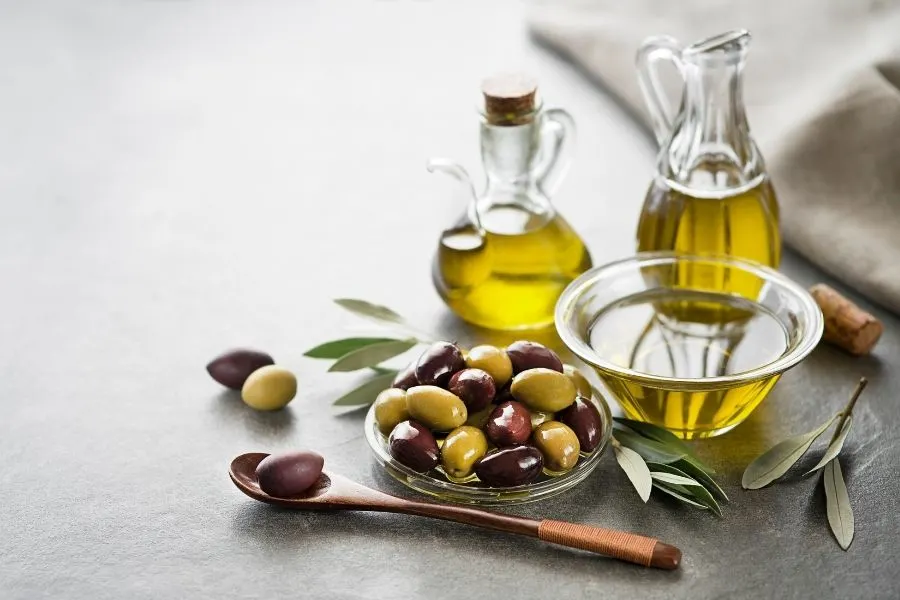If you’re making hummus at home, then you’re in for a real treat. The beauty of making anything at home is that you can make it exactly the way you like it ! And when it comes to hummus, it means you can make big, big batches of delicious hummus, exactly the way you like it.
But what do you do when your perfect hummus ends up bitter ? Well, it seems there’s a few reasons hummus can end up pretty bitter, and they’re pretty easy to avoid once you know what to look for.

Why is my hummus bitter ?
Hummus can end up bitter due to olive oil, some bad tahini, and simply because chickpeas are earthy in flavor and have nothing to cover up any bitterness. Depending on your recipe and how you’re making your hummus, it could be your ingredients are messing with the flavor.
Hummus is a little earthy and bitter, but never enough to be unpalatable. The consistency you like is completely up to you, and has nothing to do with the flavor either.
No, it’s just the ingredients. We’re assuming your hummus isn’t expired just yet, it’s just fresh hummus that tastes bitter. So let’s take a look at the main reasons.
Read also: Why Is My Hummus Bland ?
Chickpeas are earthy and a little bitter
Let’s start with the chickpeas. If you’ve only ever had hummus from the store and this is your first time making it at home, it might surprise you. Store-bought hummus is often blended with more spices and salt, and any bad flavors are usually masked (depends on the brand).
But chickpeas, by themselves, are earthy and very very slightly bitter. Just a little hint. So if your hummus only has chickpeas and tahini so far, then yeah it’s probably a bit bitter. It’s missing all the other ingredients such as garlic, olive oil, salt, lemon and one other spice.
Go easy on the spices. You’re meant to enjoy the nutty spread, and only add the spices as an additional treat.
Olive oil can get very bitter
Olive oil, especially one made from young olives and cold-pressed and extra-virgin, can get bitter. Not overly bitter, but it can get noticeably bitter, especially when you use a blender.

The main concern here is how much olive oil you’re using. For some reason, folks sometimes use olive oil like they’re making mayo. You only need a light drizzle, like a couple of tablespoons tops.
If you’re adding something like half a bottle of olive oil, then you’re likely going to get it bitter. Olive oil is naturally bitter (a bit) due to oleuropein, a compound found in fresh olives and that is removed during fermentation. Olive oil is made with unfermented, fresh olives though.
Check your tahini
And finally, we have tahini. Now, this is a traditional ingredient in hummus, but it can be tough for some. Tahini is a paste made from toasted sesame seeds, but it can get real bitter with some brands. Sesame is a bit bitter anyway, but in a nice, delicious way.
But in tahini, well, it can be too much. Taste your tahini plain, see if you like it like that. We know we’re not big fans of tahini as we’ve tried before and found it’s too bitter.
If that’s the case with your tahini too, try reducing the amount you’re using in the recipe. After all, it’s a traditional ingredient but not a major one. And if it’s still bitter, you can remove the tahini altogether, and use something else instead.
Organic nut butter (of any kind) is great. By organic we mean the kind that has only the nut and a bit of salt, no matter what kind of nut it is. If you use commercial nut butter, such as commercial peanut butter, it’s often loaded with other ingredients to thicken it. That’s neither the flavor nor the consistency you’re looking for.
How to make hummus taste better
What if your hummus is a little bit plain, aside from bitter ? Well, there are a few ways to deal with that, and we really recommend you try the first one because it makes a world of a difference.
Leave it in the fridge overnight
Hummus, like curry, is a blend of flavors. And like any great flavor, it gets better with time. Meaning that freshly made hummus will not be as flavorful or delicious as day-old hummus. It sounds weird, we know, but it makes such a big difference.
As the spices and lemon juice and garlic sit, they blend together better and develop as the hours go by.
This means that when you take your hummus out the next day, it will be much better than freshly made. Assuming you’ve kept it in an airtight container or at least covered it with plastic wrap. Oh, and remember to let the hummus get o room temp before serving !
Add less spices, stick to the basics
The thing with hummus is, you should just stick to the basics, if it’s your first time making one at home. It’s a delicious spread, and once you get into a groove with it, you’ll definitely get hooked on it.
Hummus is pretty simple on its own, so you can add spices to make it more interesting. But you should keep it to one spice at a time, otherwise you’re drowning out the rest of the hummus. A spread with garlic, onion, mushrooms and smoked paprika is awesome, but it turns into a pizza.
Meanwhile, a very good hummus will play on its main notes – chickpea, lemon, garlic – with hints from whatever spice you’re adding. In fact, it might be a better idea to only add the spice as a garnish. Yep, next time you’re plating hummus, leave it plain, and only drizzle some olive oil, with some spice on top.
Some combinations could be olive and truffle oil, olive oil with a pinch of cumin, sesame oil and a bit of fresh rosemary. The point is to not overdo it. And if you’re making a big batch for yourself and know you love a particular flavor, go easy on it, and leave the hummus in the fridge overnight. The flavor will intensify overnight.
Read Also: Why Is Basil Bitter?
Use aquafaba, not water
And finally, when you’re making hummus don’t thin it out with water. Use the garbanzo bean water instead. It’s more flavorful and a little thicker than plain water too, so you’ll get a better consistency.

